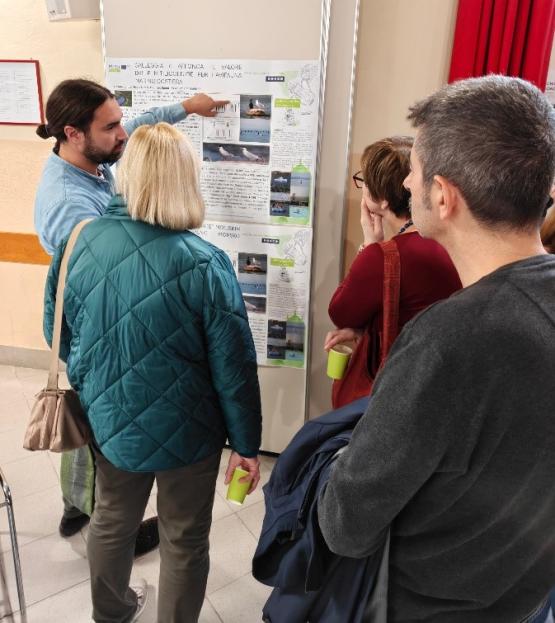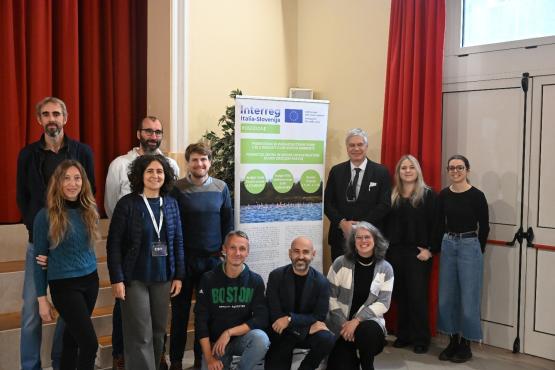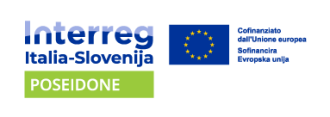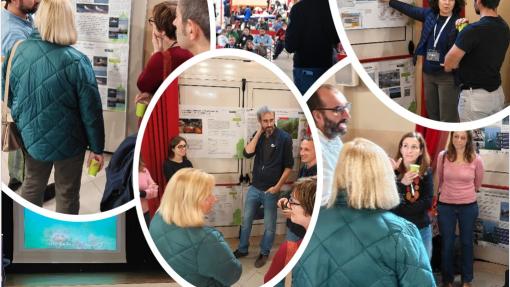On Saturday, October 25, 2025, the Teatro dei Frari in Venice hosted the Scientific Café on coastal and marine conservation, an afternoon of dialogue and participation dedicated to understanding and protecting the sea and coastal areas. The event was organized as part of the strategic POSEIDONE project, co-financed by the Interreg Italy–Slovenia 2021–2027 Programme.
Promoted by CORILA in collaboration with the project's Italian partners, the initiative transformed the scientific results of POSEIDONE into an opportunity for researchers, families, students, and citizens to meet, with the aim of fostering shared reflection on the importance of conserving marine and lagoon biodiversity in the Northern Adriatic.
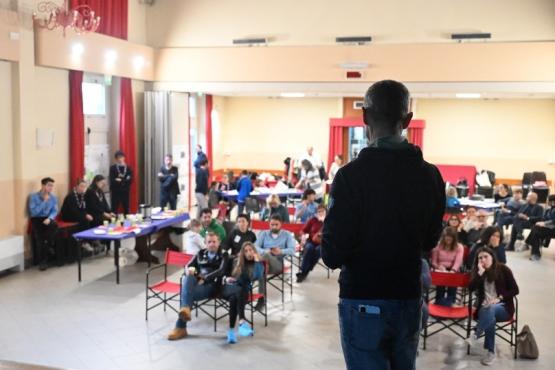
The event, which included presentations and educational activities, aimed to make the contents of a complex project accessible to the general public, studying the balance between environmental protection, sustainable use of the sea, and maritime spatial planning. The researchers presented bilingual posters illustrating the main findings of their monitoring and research activities, offering participants the opportunity to engage directly with the experts. A lively discussion ensued, where the audience's curiosity met the language of science in an informal and inclusive setting.
Thanks to the contribution of the Italian Catholic Guides and Scouts Association (AGESCI) – Gruppo Venezia 6, the initiative also involved a pack of Cub Scouts and their families, who participated in workshops and play sessions dedicated to biodiversity. Younger children were also offered the opportunity to read the illustrated book PLASTISSEA, produced by IUAV with the support of CORILA, accompanied by coloring pages and marine-themed stickers. The bilingual booklet, distributed free of charge, presented a simple and visual illustration of the values of respecting the sea and protecting it from pollution, introducing children to the language of science.
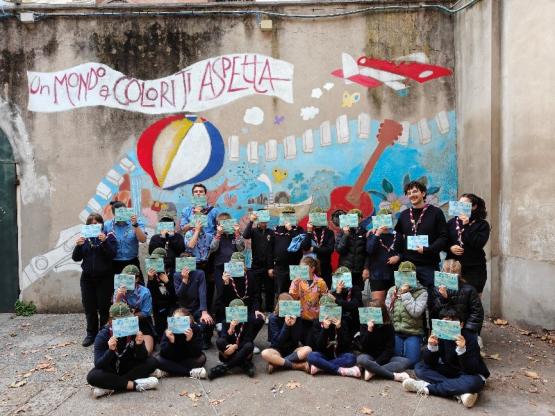
The afternoon concluded with a shared sustainable snack, which fostered further exchanges between participants and researchers, confirming the success of the scientific café format as a participatory dissemination tool. The positive atmosphere and the audience's response highlighted how research can effectively engage with society, raising awareness and encouraging responsible environmental behavior.
CORILA thanks AGESCI Venezia 6 and all the project's Italian and Slovenian partners for their contribution to the initiative. The meeting represented a significant opportunity to share the results of POSEIDONE and a concrete step toward greater community participation in the sustainable management of marine and coastal ecosystems in the Northern Adriatic.
